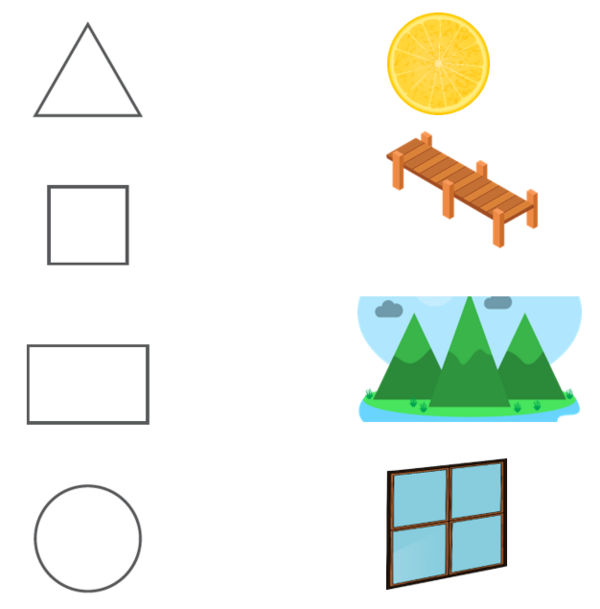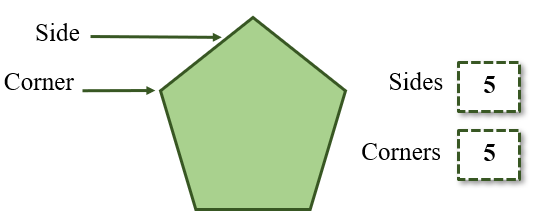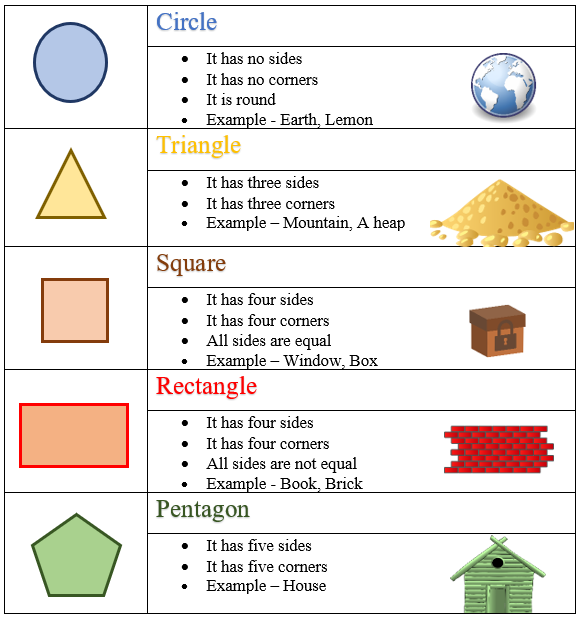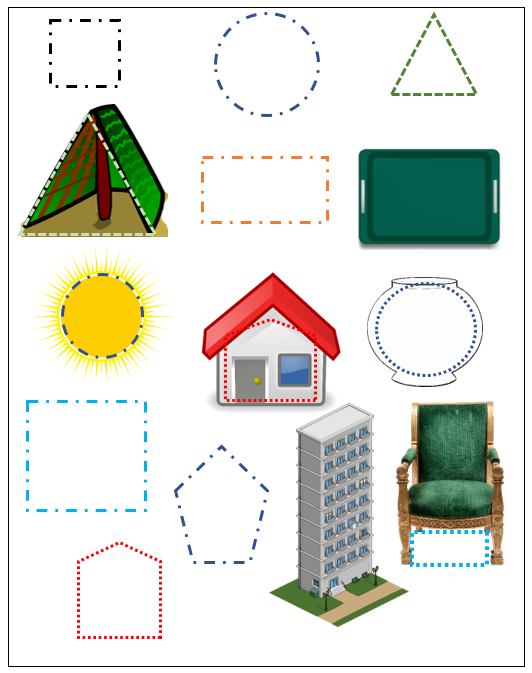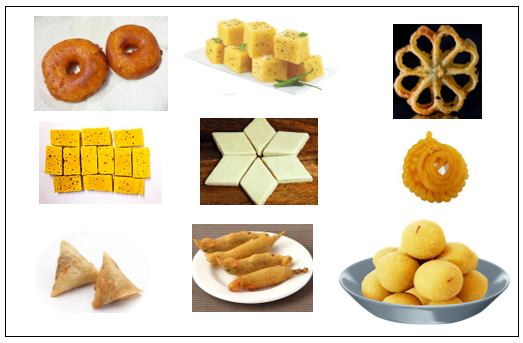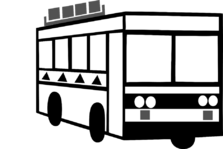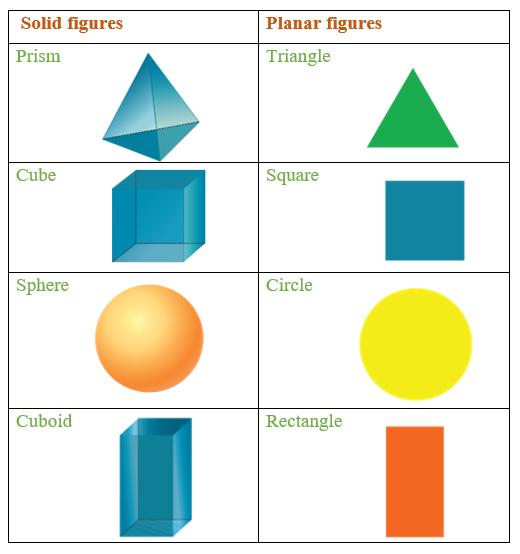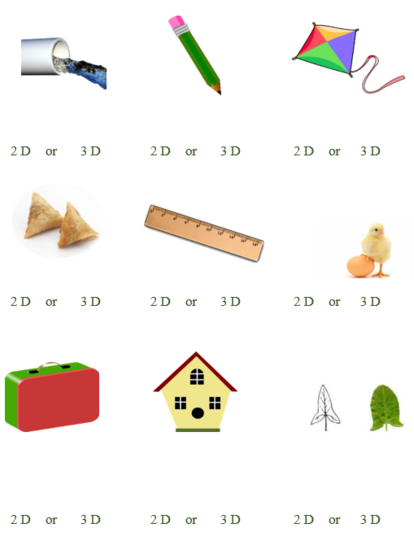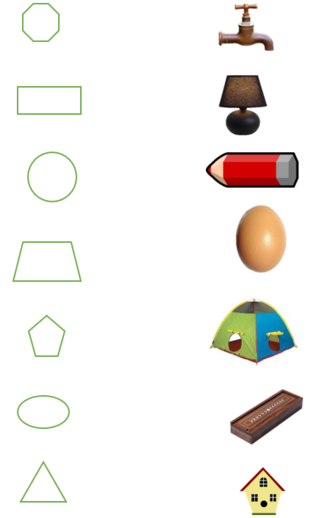Difference between revisions of "Shapes"
| (One intermediate revision by the same user not shown) | |||
| Line 84: | Line 84: | ||
== Activity: Count the shapes == | == Activity: Count the shapes == | ||
In this activity, practice differentiating and counting various basic shapes. Count the following | In this activity, practice differentiating and counting various basic shapes. Count the following | ||
| − | [[File:Shapes - Page 7.png|right| | + | [[File:Shapes - Page 7.png|right|223x223px]] |
1. Squares _______________ | 1. Squares _______________ | ||
| Line 129: | Line 129: | ||
== Activities and Exercises == | == Activities and Exercises == | ||
Make objects such as buses, flowers, animals using shape cut outs. | Make objects such as buses, flowers, animals using shape cut outs. | ||
| + | {| class="wikitable" | ||
| + | !Find planar (2D) and solid (3D) things. | ||
| − | + | Match with the things and shapes given below. | |
| − | [[File:Shapes_-_Page_11.PNG|left|frameless| | + | !Draw a line to match the objects with the shapes. |
| − | + | |- | |
| − | + | |[[File:Shapes_-_Page_11.PNG|left|frameless|541x541px]] | |
| − | + | |[[File:Shapes - Page 12.PNG|center|frameless|518x518px]] | |
| − | [[File:Shapes - Page 12.PNG|center|frameless| | + | |} |
== References == | == References == | ||
Latest revision as of 22:14, 30 July 2021
Welcome to the Class 1, Shapes lesson plan.
Learning Objectives
- Identify and define attributes of shapes
- Differentiate between regular and irregular shapes
- Compose new shapes and identify shapes in nature
- Identify two- and three-dimensional shapes
- Partition shapes – circles, rectangles
Shapes of Objects
When we look around we find all objects having some shape or the other. A shape defines the structure of an object and it is one of the important attributes of an object. Match the following shapes that you see in nature.
What is a shape?
See the following image. It has sides and corners. It is made of lines and encloses some space. Given below is a list of common shapes that we use in our daily life.
Activity: Draw the shapes
Now, let us identify and draw some basic shapes. What shapes do we see in the things around us?
To draw any shape, connect the lines and dots. Dot or point appears as • and a line is represented as —
Irregular shapes
Notice that in some of these shapes given below, the sides are unequal. Such figures are said to be irregular.
| Regular Triangle Irregular Triangles |
| Regular Square Irregular Squares |
| Regular Pentagon Irregular Pentagons |
Circle the irregular food shapes
Distinguish basic regular shapes from irregular shapes.[1]
| Colour the rectangles. |
| Colour the triangles |
| Colour the squares |
| Colour the triangles and rectangles |
| Colour the squares and circles |
Activity: Fill in the shapes
Match the shapes to complete the missing parts.

|

|
Activity: Count the shapes
In this activity, practice differentiating and counting various basic shapes. Count the following
1. Squares _______________
2. Rectangles _______________
3. Triangles _______________
4. Circles _______________
5. Stars _______________
Activity: Making objects
In this activity, let us make commonly seen things and beings using regular and irregular shapes. Make your own animal motifs for making cards and gifts.
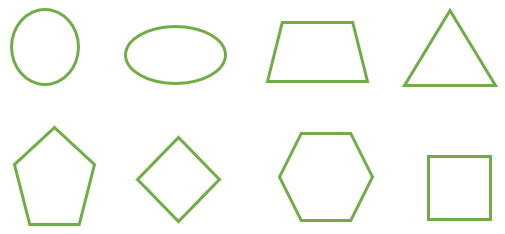
| ||
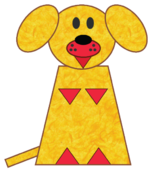
|
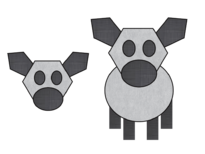
|
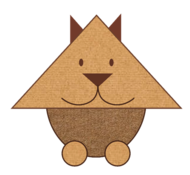
|
Activity: Partition shapes
Learn about how many sides are there in a shape. For each shape draw the line to make it half and colour one half of it red.
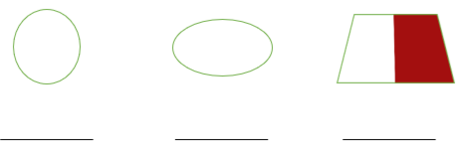
|
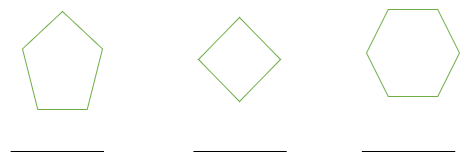
|
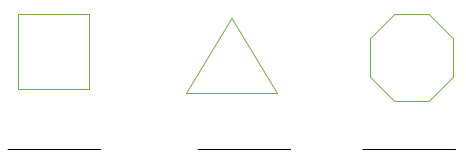
|
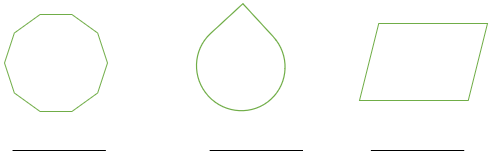
|
Learn: 2-Dimensional and 3-Dimensional
In this section, learn about dimensions and shapes associated with those dimensions. Three dimensional shapes include solid figures having a space inside them. The two dimensional figures are said to be planar.
Some things are said to have two kinds of shapes.
Activities and Exercises
Make objects such as buses, flowers, animals using shape cut outs.
| Find planar (2D) and solid (3D) things.
Match with the things and shapes given below. |
Draw a line to match the objects with the shapes. |
|---|---|
